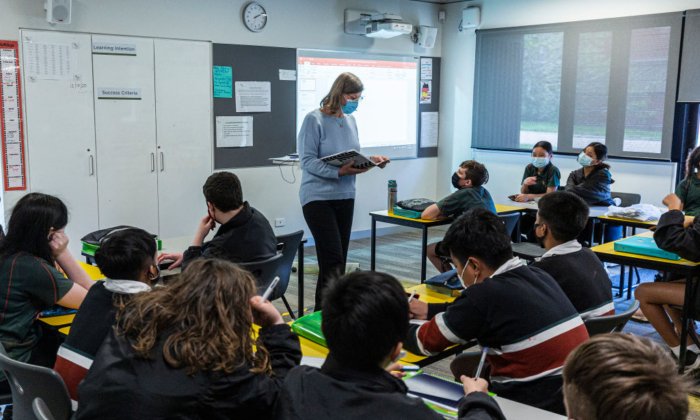Australian Teachers Inadequate in Addressing Controversial Topics in the Classroom: Expert Analysis
Educators are struggling to comprehend the reasons for Australia’s declining civic education.
Teachers are not adequately prepared to address controversial topics in the classroom, leading to students’ poor understanding of social and political affairs, as per an associate professor.
In March, the Joint Standing Committee on Electoral Matters initiated an inquiry into Australia’s civics education after data indicated that the current approach was ineffective.
According to the National Assessment Program (NAP-CC), most Australian students lack a sufficient understanding of how the political system operates, with only 38 percent of Year 10 students achieving proficiency in civic education.
This outcome has sparked concerns, as civic education is deemed crucial to the curriculum. Education departments and experts believe that civic education enhances students’ critical thinking skills and broadens their understanding of political and social issues, preparing them to participate in democracy as informed citizens.
Conversely, individuals with minimal societal knowledge, poor media literacy, and inadequate critical thinking skills are vulnerable to misinformation and manipulation.
Teachers Lack Adequate Tools to Address Controversial Issues
In his submission (pdf), Simon Knight, an associate professor at the University of Technology Sydney (UTS), attributed part of the issue to teachers’ insufficient expertise and training in tackling complex political and social matters.
Mr. Knight, also the founding director of UTS’s Centre for Research on Education in a Digital Society, outlined three primary challenges that teachers encounter in navigating the teaching of civic and citizenship education.
The first challenge, he noted, is that civic education is not a specialized area for most teachers.
The second challenge involves teaching controversial issues that demand a broad knowledge base.
The third challenge lies in how teachers approach issues with significant disagreement and uncertainty.
Implementing appropriate pedagogical strategies in this scenario is complex, and teachers may lack the confidence and support needed to do so, Mr. Knight added.
According to Mr. Knight, it is crucial to “support professional learning for both pre-service and in-service teachers as a way to provide learning support and elevate the status of civics and citizenship education and its teachers.”
“Engagement with democracy necessitates grappling with issues where there is disagreement, along with the evidence, values, and uncertainties underlying those disagreements,” Mr. Knight stated.
Students Focus on System, Not Policies
Meanwhile, Adam Lovett, a philosophy lecturer at the Australian Catholic University, highlighted that a reason for the failing civic education is the curriculum’s emphasis on teaching facts about political institutions rather than policies.Mr. Lovett argued that teaching about policies equips citizens to make informed choices on election day.
For example, Year 10 students learn about democratic values, but they do not delve into critical social issues such as taxation, healthcare, immigration, inequality, housing, etc.




